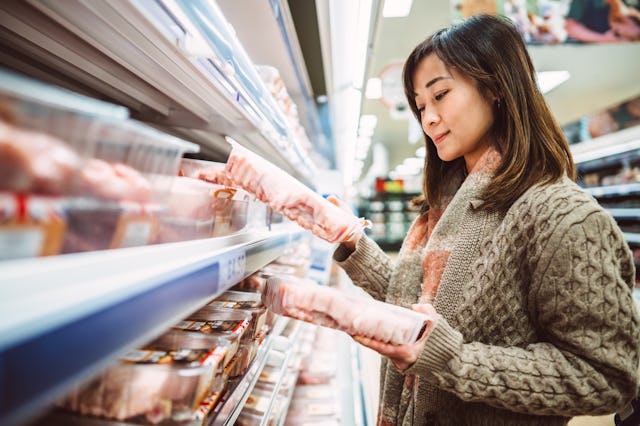The USDA Rolled Back A Plan To Reduce Salmonella Levels In Chicken
Salmonella causes 1.35 million infections a year — including about 420 deaths.

The U.S. Department of Agriculture (USDA) reneged on a plan to limit salmonella bacteria levels in raw poultry, putting an end to a Biden administration effort to further prevent food poisoning from meat.
The department claimed the rule, which was set to go into effect in August after three years in development, would’ve put an “overwhelming burden” on businesses, citing feedback from over 7,000 public comments.
The rule would have required companies to keep salmonella bacteria levels below a certain threshold, and to test for six strains most associated with illness.
Food safety experts criticized the withdrawal, which comes on the heels of rollbacks of food safety regulations and human services across the federal government, including suspending federal testing of milk and dairy products.
“The message they seem to be sending to consumers through all of these actions is: You’re on your own when it comes to food, safety and trying to figure out how the current regulatory system is going to protect consumers,” Brian Ronholm, the director of Food Policy for Consumer Reports, told the Washington Post.
The USDA told the Post in a statement that because the proposal had not yet taken effect, the rollback would not significantly risk consumer safety.
“The Biden-era proposal would have imposed significant financial and operational burdens on American businesses and consumers, failing to consider an effective and achievable approach to address salmonella in poultry products,” the statement said.
Symptoms of salmonella include diarrhea, stomach cramps, and vomiting, and is most commonly spread through food, including chicken and turkey products.
Salmonella causes 1.35 million infections a year, and about 420 deaths, according to the Centers for Disease Control and Prevention. The goal of the proposed rule, according to a Federal Register notice, was to reduce infections from the bacteria by 25%.
The withdrawal “sends the clear message that the Make America Healthy Again initiative does not care about the thousands of people who get sick from preventable foodborne salmonella infections linked to poultry,” Sandra Eskin, a former USDA official who helped draft the rule, told the Associated Press in a statement.
The National Chicken Council, a trade organization representing American chicken producers, maintained that the rule would put undue burdens on its members and raise costs for consumers. Ashley Peter, the NCC’s senior vice president of scientific and regulatory affairs, told the Washington Post that safety is a top priority.
“We remain committed to further reducing salmonella and fully support food-safety regulations and policies that are based on sound science, robust data, and are demonstrated to meaningfully impact public health,” she said.